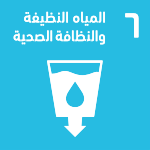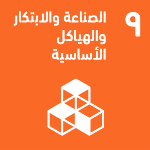Patience Abotsi and her four kids live in the Vume Town of rural Ghana. Before Project Maji installed a solar-powered water kiosk in their village, Grace and Diana, her two older daughters would be late to school almost every day. The girls would wake up at dawn and walk to the river fetching water so their mom could prepare breakfast for the family. Patience told us: “My daughters would be so tired from the 40-minute trip, even before they headed to school”.
Not just that, the dirty river water caused stomach aches and chronic diarrhoea, requiring frequent visits to the health clinic. Those visits meant missing school and spending money on medicine. And still, with a bilharzia infested river as their only water source, Patience and her girls would walk up twice a day to collect dirty water. It was their only option—even though it was making their family sick.
But now, thanks to solar-powered water kiosk located in the heart of the Vume community, Patience and her community have access to the clean and safe water they need. She told us:
“Clean water has improved the health of my family, my girls get more rest, and they are stronger now, free from the diseases that dirty water caused. God bless Project Maji for this change in our lives.”
We’re so grateful for that—and for supporters like you who have supported our work and made this transformation possible. All thanks to safe water access, kids like Grace and Diana, get to be kids. They get to go to school, enjoy playtime and just..be healthy!
This is why we are working to extend this life-changing gift to ONE more community in rural Ghana this Ramadan with the help of a generous donor who will match your impact! By supporting us, you help us deliver sustainable access to safe water to remote rural communities like Vume. To us, sustainability of a waterpoint and the community’s long-term reliance on our service is key. We don’t just install a kiosk, pat ourselves at the back, pack our bags and leave. Our work starts once the taps open. Through remote monitoring technology, we evaluate the performance of each site on a daily basis. In the unlikely event of a kiosk malfunction, our trained technicians travel to the community and restore waterpoint functionality, as fast as possible.
Every time we visit one of the communities we serve, men women and children share stories similar to that of Patience and her family. Yet, we rely on hard data to quantify the real social impact delivered by our kiosks. You would be amazed to learn how a sustainable supply of clean water changes everything in the communities we serve. Our post-impact surveys reveal that water-borne illnesses have been nearly fully eliminated, school and work attendance go up and women and girls are able to access clean water just a short stroll away from their front doors, as water collection time drop by 90%.
Here’s what you can do to join the impact
AED 50 will provide one person with sustainable access to clean water
AED 400 will provide 10 people with sustainable access to clean water
AED 800 will provide 20 people with sustainable access to clean water
AED 2000 will provide 50 people with sustainable access to clean water
AED 4000 will provide 100 people with sustainable access to clean water
AED 8000 will provide 200 people with sustainable access to clean water
AED 20000 will provide 500 people with sustainable access to clean water
AED 40000 will provide 1000 people (1 community) with sustainable access to clean water
AED 120,000 will provide 3,000 people (3 communities) with sustainable access to safe water
Head-quartered in Dubai, Project Maji is an official member of the International Humanitarian City. We are a pan-African safe water enterprise, working to provide sustainable access to clean water for rural communities in Sub-Saharan Africa and beyond. Since 2015, Project Maji has served over 100,000 people with millions of litres of safe water pumped through our 100+ solar-powered water kiosks across Ghana and Kenya. Declared winners of the Mohammed bin Rashid Al Maktoum Global Water Award 2020 under the “Innovative Research and Development” category, we are well on our way scaling for impact and reaching our goal to serve 1 million people with sustainable access to safe water by the year 2025.
There is no time anymore



I Want to help people.
Pl ensure the aed 10 is utilised toward said endeavour ( toward 1 person water requirement for month thank u